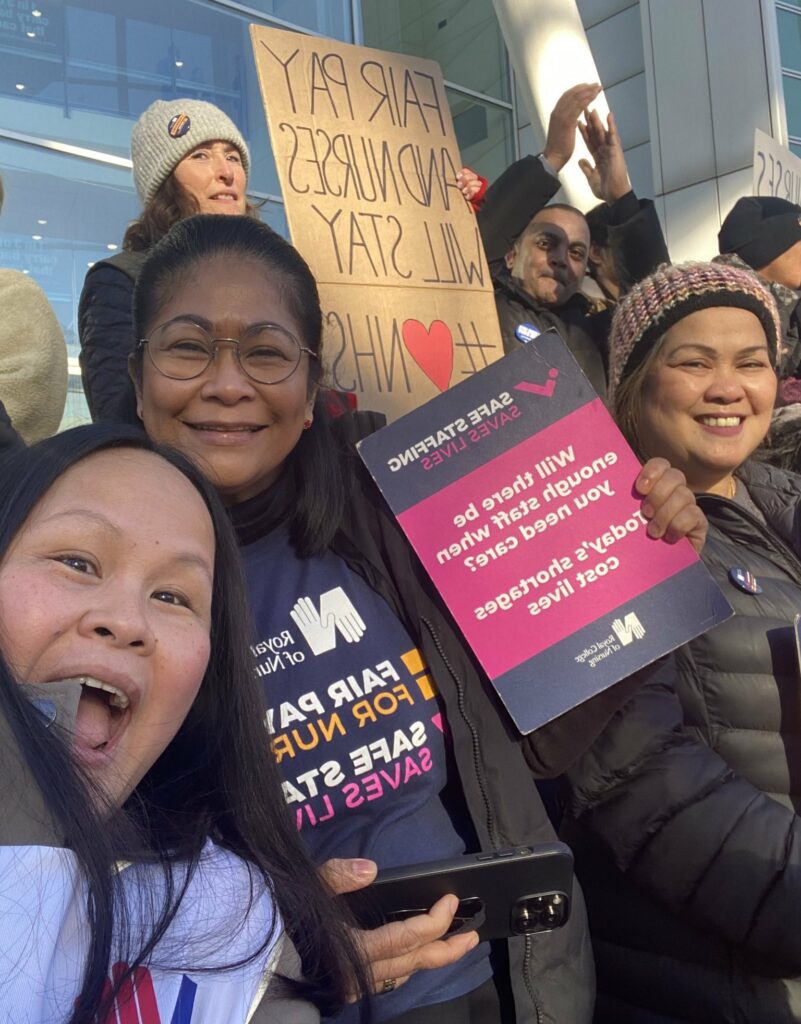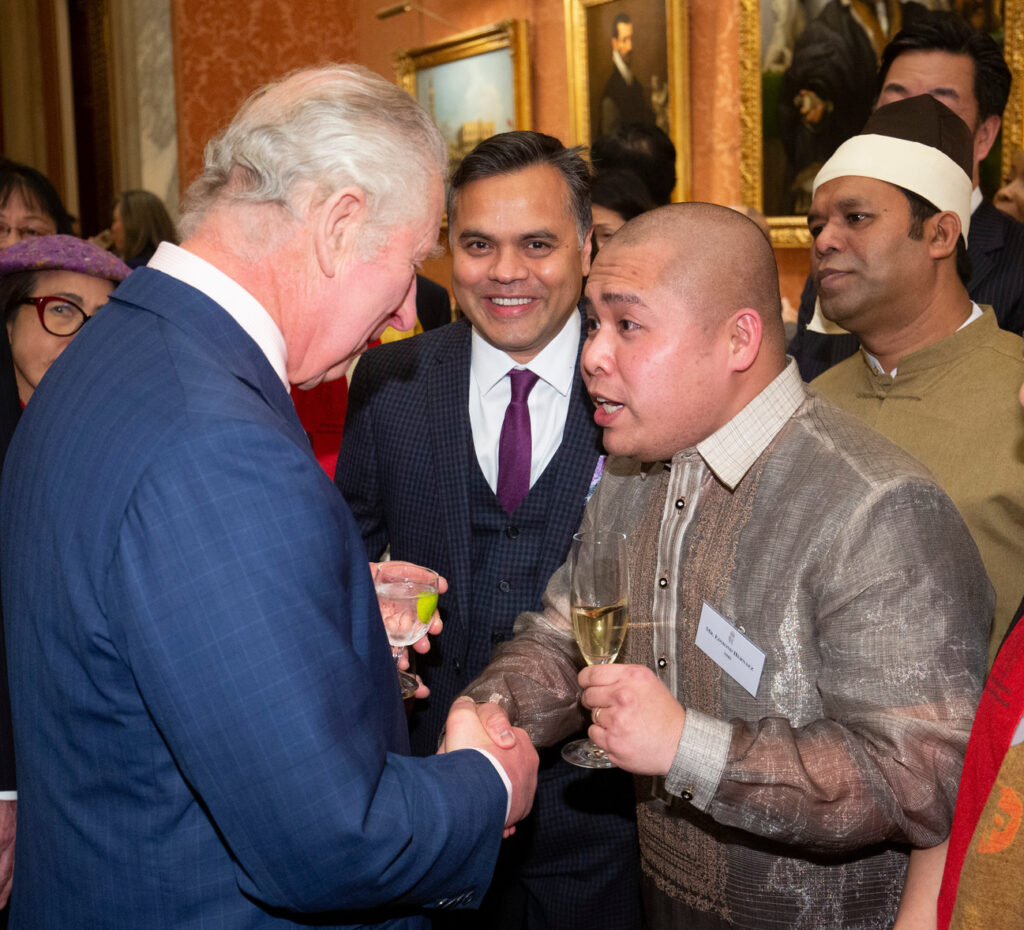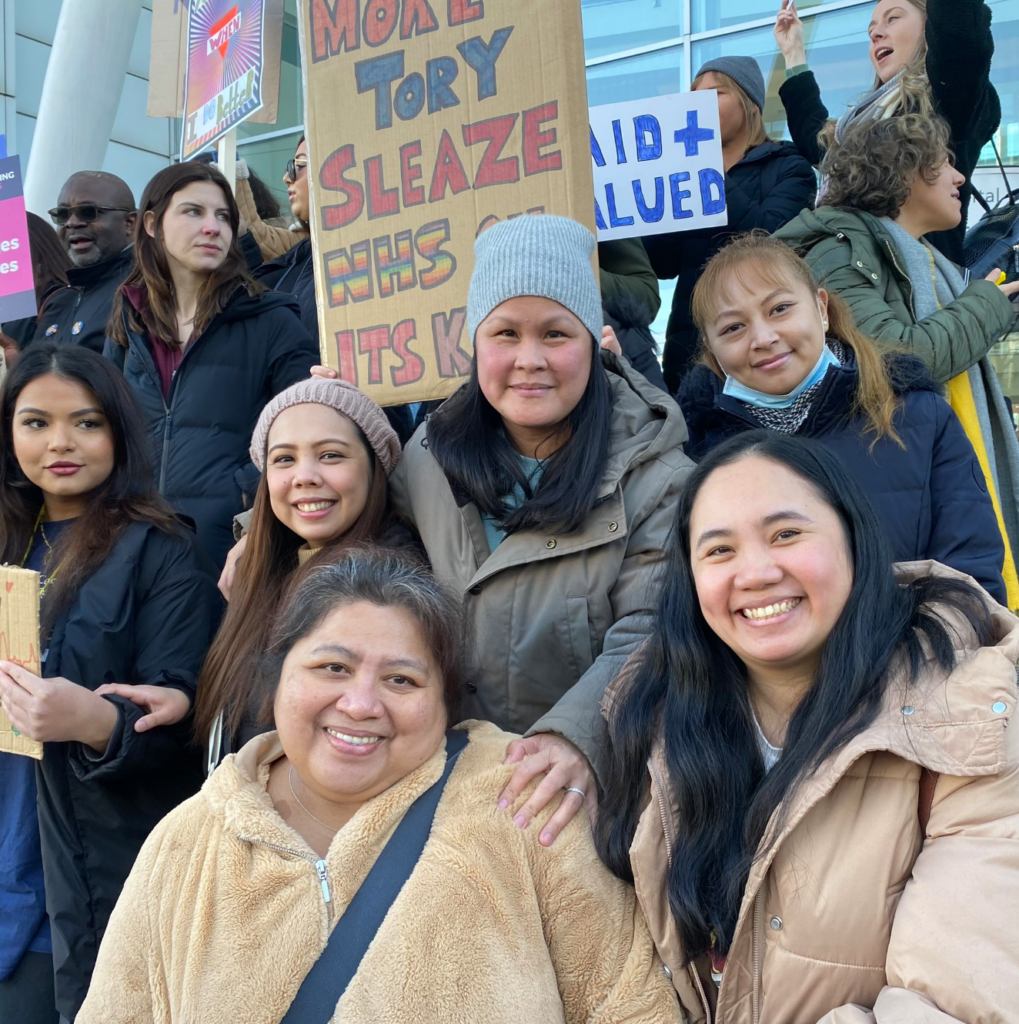NHS in England has seen its biggest strike among ambulance workers and nurses on Monday, 6th February. Filipino nurses have mixed feelings about strikes. Tinig UK spoke to three nurses who came to the UK at different times on their views about nurses’ pay in the NHS and on joining the strikes.
“I’m grateful to work as a nurse in the UK“
Rene Tequillo Jr, 33, works in the stroke unit at Kingston Hospital NHS Foundation Trust in London. He voted to join the strike in his trust but apparently, the votes fell short of the required number for the staff to join in the industrial action.
If the hospital did get the required votes, Tequillo said that he would probably still go to work because his services are needed.
While he supports the strike, what concerns him more was the news that Chancellor Jeremy Hunt plans on putting a cap on tax-free investment ISA savings. He and his wife have been setting aside ISA savings, so he posted a curt message on Facebook that “the government plans to penalise us because we save, invest and spend frugally.” He later regretted his message and took it down after recalling his situation in the Philippines seven years ago.

“My monthly salary back in the Philippines seven years ago was PhP 7,150 (equivalent to £108.00 today). I prayed to come to the UK. And now that I’m here, I should be grateful (for the opportunity to work here),” Tequillo said.
“I realised that it’s a numbers game. Nurses here in the UK are protesting because their salary is low…Nurses in the US are also protesting that their salaries are low even though they have bigger salaries there (compared to the UK). As soon as your salary increases, your wants also increase,” Tequillo explained.
He said that his family of three are “living below our means,” to combat inflation. His wife works part-time as an endoscopy nurse, also at Kingston Hospital.
Despite the couple’s combined salary of roughly £5,000 a month, they have been very careful about their spending, making sure they set aside money for savings and investment.
“I’m looking back seven years ago and I’m thankful. It’s how you budget, how you save and how you invest,” he said.
He said that he and his wife are happy at work so far, appreciating how their employer prioritises staff family wellbeing rather than work. Rene admits, however, that he is open to the possibility of moving countries sometime in the future.
“I am grateful that’s why I’m on strike”
Veteran Filipino nurse Susie Lagrata understands how younger Filipino nurses feel about working in the UK. “I have been there, and I share their perspective. We are grateful but they (UK government) should also be grateful to nurses,” she said.

On Monday, she joined the picket lines with some Filipino colleagues from the University College London Hospital where she is an advanced nurse practitioner and headache and neuromodulation lead nurse. She received the Royal College of Nursing (RCN) Innovations award in 2022 for starting the first nurse-led specialised headache treatment centre in Europe.
“Just because we are fighting for our rights does not mean that we are not grateful. I’m doing this to protect the NHS and for future nurses,” she said.
“We are doing this for international nurses, for Filipino nurses, but we also need to support homegrown nurses.” She said it is important for everyone to work together.
Lagrata, 47, arrived in 1998 and in she says that in her 25 years of working for the NHS, “I have seen how the number of nurses has declined.”
She stressed that it’s not just about pay. “It’s about patient safety. How can we look after patients if we can’t recruit and retain nurses?” She explained that people are either leaving the profession or moving to private care because of the current situation.
According to Lagrata, most nurses are in band 5, the pay level for newly qualified nurses. Band 5 nurses get a starting salary of £27,055 and particularly for those living in London, this is not enough. “A take-home pay of around £1,300 is not enough to pay for rent, transport and food if you live in London,” she said.
“We’re only asking for fair pay. We’re not asking for higher pay. We’re asking for an appropriate salary.”
Lagrata is frustrated that “The government is not even sitting with us, not negotiating with us. We don’t feel valued, we are not important to them.”
When asked about her thoughts on the possibility of a new healthcare system to replace the NHS, she said that all stakeholders should be consulted: managers, doctors, nurses, patients, the public. “They should research and do more studies.”
She said that what works in other countries may not work for Britain. “It should be appropriate to the UK environment, culture, and policies.”
Filipino nurses have different needs
Edmond Hernaez, 35, clinical nurse manager at the Royal Devon University Healthcare NHS Foundation Trust, said that Filipino nurses have different needs depending on the stage of their careers as nurses. He currently supervises some 150 nurses in his role.
Hernaez is also the co-chair of the ethnic minority network in his trust where he works closely not just with Filipino nurses but with all internationally educated nurses (IENs) in his workplace. He joined at least 10 other Filipino nurses who met King Charles at Buckingham Palace on 1st February during a reception for East and Southeast Asians.

For new nurses who have just been in the UK for a year or less, they need to become familiar and be supported with work guidelines, Hernaez explained. For those who have been here for two and four years, they are still thinking about their goals. “Is it money or career progression?” he said.
For nurses who have been here for at least four years, they will be thinking of career progression. “We empower them and support them through restorative clinical supervision,” an approach that enables staff to reflect on their experiences and take appropriate action.
According to Hernaez, there are about 1,000 to 1,200 nurses working in Devon.
Asked about his assessment of Filipino colleagues’ views about the strikes, he said that about 60 percent want an increase in salary. Hernaez, who has two small children, works one day a week at a private hospital to augment his income.
Hernaez said that he is content with his salary but they just need a bit of extra income for treats for the family.
“I’m 50-50 with the strikes,” he said. He said that the UK is a “greener pasture” for many of us. But for me, I also want to give back,” he said.
He said that “Filipino nurses are more resilient because we’ve experienced worse situations in the Philippines. It’s how you manage your resources.”
Top photo credit: Susie Lagrata













